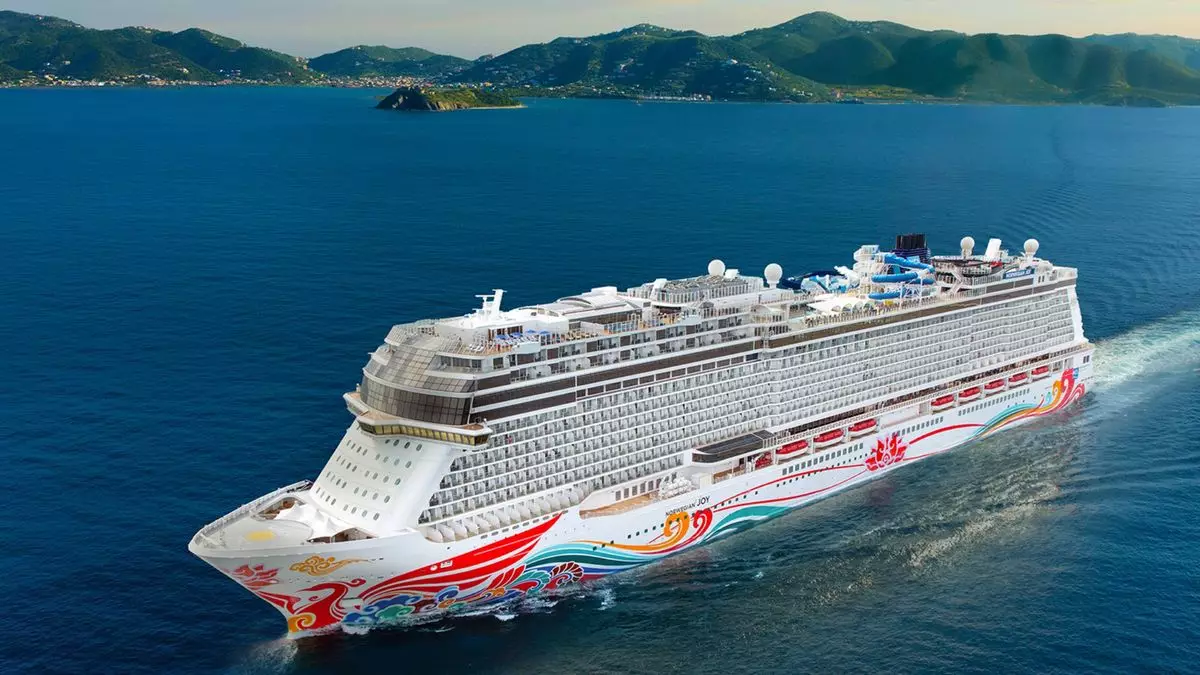As tensions persist across global landscapes, particularly regarding key geopolitical zones like Israel and Ukraine, cruise line executives are assessing the potential for growth against a backdrop of uncertainty. Norwegian Cruise Line Holdings (NCLH), under the leadership of CEO Harry Sommer, finds itself at a crossroads influenced by potential changes in U.S. policy. Recently, the administration hinted at possible tax initiatives targeting the cruise industry, sending ripples through cruise line stocks. Although it may be premature to draw firm conclusions on the ramifications of these proposed taxes, Sommer’s strategic viewpoint highlights NCLH’s potential for recovery and renewed growth, primarily contingent upon the outcomes of ongoing international negotiations.
During a recent earnings call, Sommer emphasized optimism, linking the prospects of resolution in conflict areas with future opportunities for cruise line operations. He noted that beneficial outcomes in both the Israel-Hamas and Russia-Ukraine situations could serve as vital tailwinds for NCLH, particularly eyeing 2026. This timeframe aligns with NCLH’s operational strategy of positioning a substantial portion of its fleet in Northern European ports, excluding significant locations like St. Petersburg, which remains under geopolitical scrutiny. As Sommer articulated, if the conditions improve and St. Petersburg can once again welcome travelers, NCLH stands to significantly capitalize on renewed interest in the region.
Peace is not merely a diplomatic aspiration for Sommer; it is intertwined with business vision. The cruise industry thrives on stable geopolitical environments as these often translate to increased consumer confidence and a resurgence in travel. Without stable political climates, the cruise business could be stifled, leading to less market activity and diminished profitability.
A Resilient Business Model: Performance Indicators and Future Outlook
Notably, NCLH reported strong financial performance indicators, contributing to a sense of stability amid external pressures. The company set records in total revenue for 2024, achieving $9.5 billion—an impressive 11% increase year-over-year. This growth is reflective of an efficient operational strategy that has been robust enough to weather external challenges. Furthermore, Sommer commented on an exceptional booking pace for the coming months, citing a surge in demand for summer cruises in Europe and Alaska. This suggests consumer enthusiasm remains intact, a promising sign for the cruise industry’s recovery efforts post-pandemic.
While luxury brands such as Oceania Cruises and Regent Seven Seas are currently experiencing slower booking rates, the broader performance of NCLH’s luxury offerings does not overshadow the robust activity seen within its core, the Norwegian Cruise Line brand. This reveals a capacity for adaptation and flexibility in catering to varying market demands, which is crucial in an industry subject to rapid changes in consumer sentiment.
Occupancy rates further encapsulate NCLH’s promising trajectory; occupancy climbed to 104.9% for 2024, indicating that demand finally aligns with supply as travelers return to cruising en masse. Moreover, Sommer acknowledged the company had successfully refinanced $1.8 billion in debt, a strategic move designed to bolster financial health and enhance operational liquidity.
As NCLH strategizes for the forthcoming years, the interplay between geopolitical stability and consumer engagement will undoubtedly shape its course. The ongoing commitment of the U.S. administration to foster peace in pivotal areas could facilitate a rebound in cruise travel, transforming the landscape entirely. Additionally, as the recovery continues and consumer trends solidify, NCLH’s proactive approach in adjusting its operational strategies will be essential.
Collectively, the cruise industry must remain resilient, advocating for its interests while also embracing the larger, more humane aspects of global governance. Sommer’s perspective is one not just of business viability but of hope for a more peaceful global community that, in turn, nurtures industry vitality. The potential of Norwegian Cruise Line Holdings rests upon its adaptability and foresight as it bravely navigates these uncharted waters.


Leave a Reply